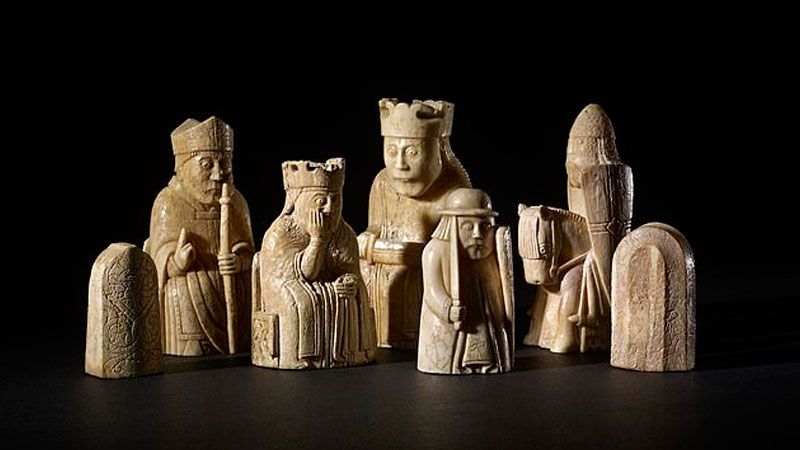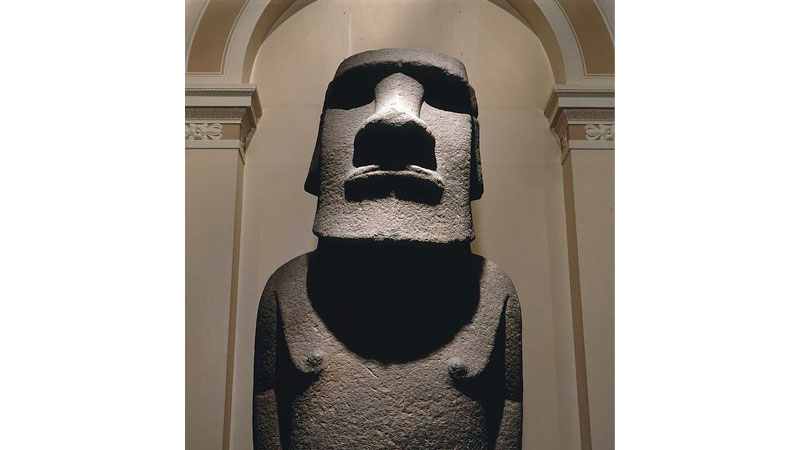 The British Museum has made over half of its extensive collection – more than four million objects – viewable online for free during the coronavirus lockdown. Items including a once-lost watercolour by Dante Gabriel Rossetti and the striking Lewis Chessmen can be viewed virtually from the comfort of your own home.
The British Museum has made over half of its extensive collection – more than four million objects – viewable online for free during the coronavirus lockdown. Items including a once-lost watercolour by Dante Gabriel Rossetti and the striking Lewis Chessmen can be viewed virtually from the comfort of your own home.
The revamp of the online collection includes a zooming facility that allows some objects to be examined at ‘a level of detail inaccessible to the naked eye.’
This includes Hoa Hakananai’a, a moai – or statue – from Easter Island that has been in the museum for 150 years and islanders have called for it to be returned.
Also viewable at digital ‘close quarters’ is a 1,600-year-old Chinese narrative painting on a silk scroll – with more zoomable images to be added in the coming weeks.
The online collection – first made available in 2007 – already included the museum’s most famous objects, such as the Rosetta Stone, the artefacts of Sutton Hoo, the Cyrus Cylinder, the Elgin Marbles and the Benin Bronzes.
However, the revamp has seen the user interface improved and many more recent acquisitions added – including a 3,000-year-old Bronze Age pendant and the previously lost Rossetti watercolour. Notably, the online repository now boasts the museum’s entire collections from both Ancient Egypt and Australia.
This includes Hoa Hakananai’a, a moai — or statue — from Easter Island that has been in the museum for 150 years and islanders have called for it to be returned
Also accessible online are various sculptures from Ancient Greece and Rome, and some 50,000 English coins that were minted from the medieval period up to the time of the Tudors themselves. These are accompanied by more than 750,000 prints by famous artists including Rembrandt Harmenszoon van Rijn, William Hogarth and Kara Walker.

‘Our collection bears witness to humanity’s ability to survive and indeed thrive in precarious times,’ he added.
‘We are delighted to be able to unveil this major revamp early, and hope that these important objects can provide inspiration, reflection or even just quiet moments of distraction during this difficult time.’
The museum has reported a huge surge in traffic to its website since it closed its doors on March 18 due to the COVID-19 crisis – with online visitor numbers up by 120 per cent in comparison with this time last year.